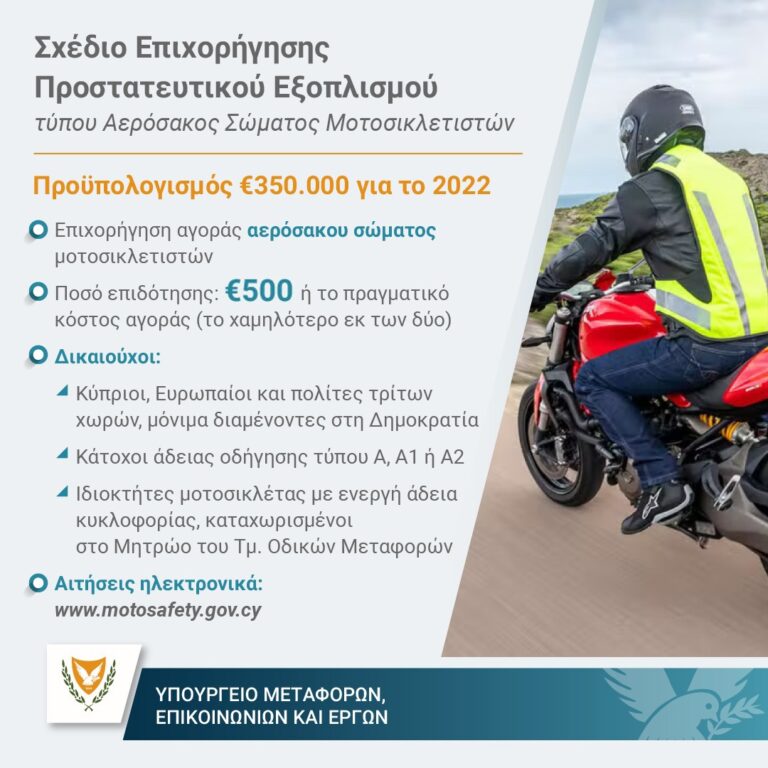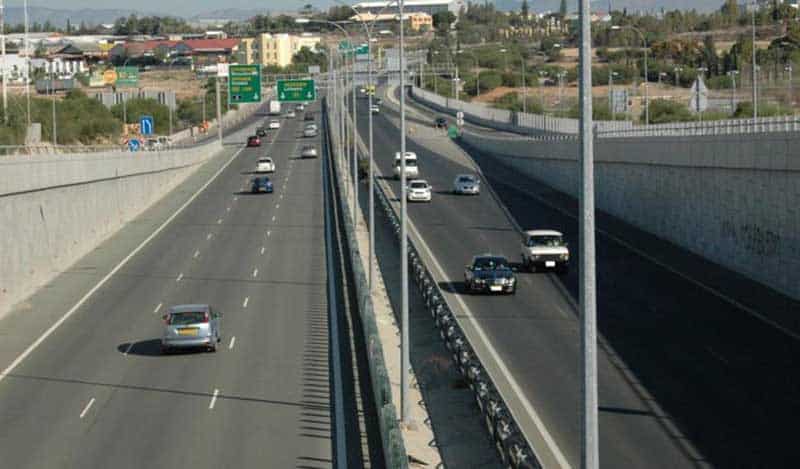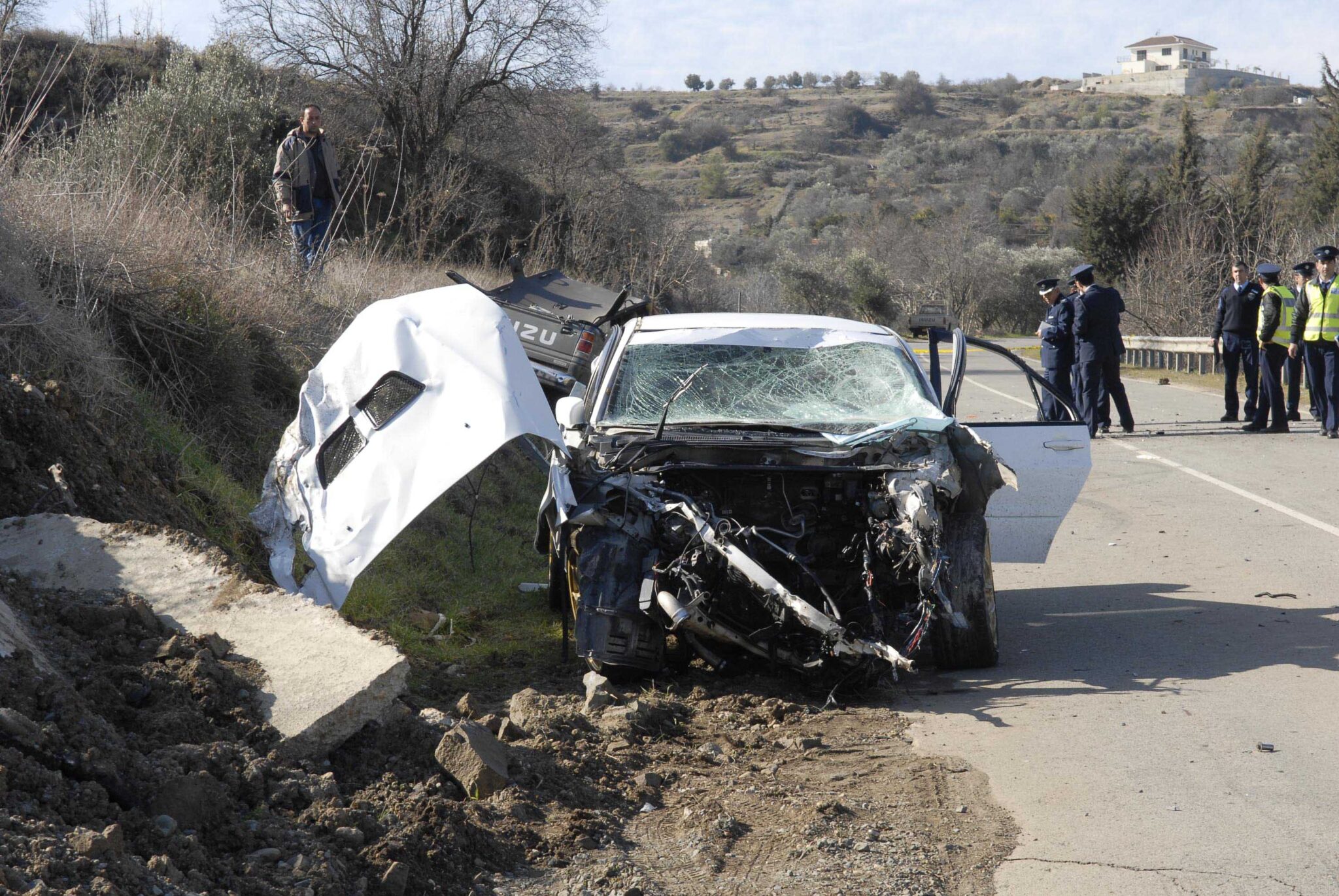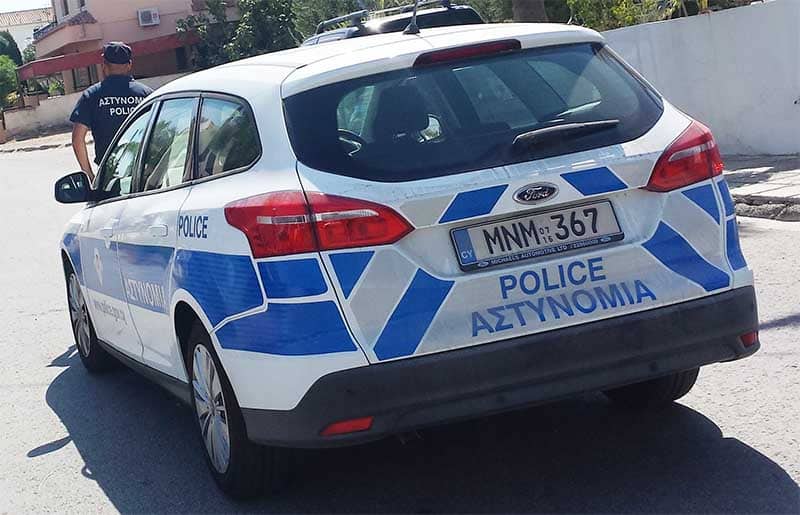Scheme for protective equipment for bikers, police step up checks | Cyprus Mail

As police step up traffic checks amid a spike in road fatalities, the transport ministry on Thursday launched its incentive plan for the purchase of protective equipment for motorcyclists.
Applications for the scheme opened at 11.00 am and will close at 12 noon on July 7, 2022. The subsidy amount is €500 or the actual cost of purchase, whichever amount is smaller.
The plan covers the period of 2022 to 2024, with a total budget of €1.050.000.
Beneficiaries of the project are Cypriot, EU and third-country nationals who are permanent residents of Cyprus, are holders of a category A, A1 or A2 licence, and are owners of a registered motorcycle type vehicle.
Meanwhile, police have stepped up checks to prevent fatal and serious road collisions.
Traffic police in Nicosia and Limassol reported a total of 270 violations after checks carried out on Wednesday night to Thursday morning, police said in a statement on Thursday.
And in Limassol, 12 large-capacity motorcycles and a car were confiscated, while a 27-year-old man was found riding a motorcycle without a driver’s licence and insurance. He had a passenger and tested positive for drugs.
The Cyprus Police said its campaign aims to prevent serious and fatal road collisions, as well as to deal with delinquency and nuisance caused by vehicles that have undergone modifications.
This year has seen 20 fatal accidents with 22 victims, marking a 33 per cent increase in collisions and 37.5 per cent increase in deaths over the same time last year.
This has prompted concern, with Transport Minister Yiannis Karousos calling a broad meeting on the issue earlier this week with government departments, labour unions and other relevant stakeholders and organisations.
Applications for protective equipment can only be made electronically through the online platform www.motosafety.gov.cy.
More details on the project’s at www.motosafety.gov.cy or by email at motosafety@mcw.gov.cy .
Source: Scheme for protective equipment for bikers, police step up checks | Cyprus Mail
Scheme for protective equipment for bikers, police step up checks | Cyprus Mail Read More »








